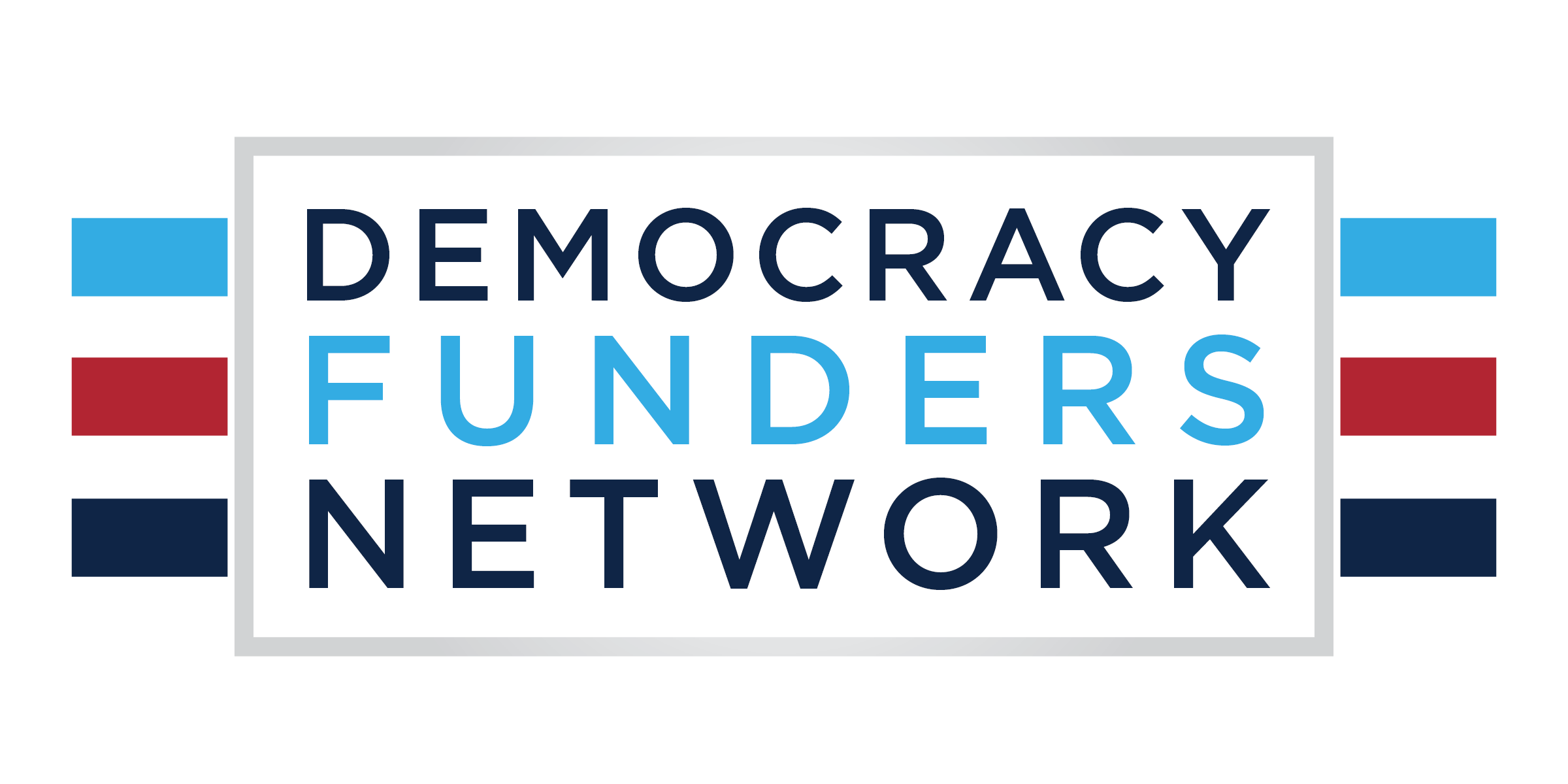Pooled funds represent a valuable means for funders to engage in the democracy space. Democracy Funders Network has developed a guide to help funders determine which pooled funds best align with their giving priorities and will be the best partners in advancing their goals.
The PACE Primer: Democracy is a resource designed to explore the question, “What is democracy?” and help funders assess their interest and understanding in democracy, and ultimately, help them along their journey toward integrating or prioritizing it in their work.
Candid (formerly Foundation Center and Guidestar) manages a free data visualization platform featuring tens of thousands of grants regarding philanthropy's role in U.S. democracy.
The Center for High Impact Philanthropy published a toolkit for funders interested on strengthening democracy, which is focused on two primary strategies: increasing civic engagement and reinvigorating local media.
Healthy local journalism is imperative to a healthy democracy, but as a funder who has not given in the space before, it can be challenging to know where to begin. This guide is designed to help funders gather the information they need to fund local news and information in their communities.
Suzette Brooks Masters challenges philanthropy to put democracy first by elevating the importance of democracy issues to achieving foundation missions, exceeding the standard 5% payout rate, and committing resources directly towards democracy issues.
The Hewlett Foundation announces its new U.S. Democracy Program, deepening the work it had previously invested in through its Madison Initiative, and investing in ideas, institutional developments, and reforms that will come to fruition over periods spanning multiple election cycles, and that garner the support of leaders and parties on both sides of the aisle.
In the midst of COVID-19 and the oncoming 2020 election, Democracy Fund President Joe Goldman urges philanthropy to invest in critical democratic priorities such as successfully implementing the census and the election, ensuring continuity of government, preserving access to objective journalism, and protecting civil liberties.
Daniel Stid at the Hewlett Foundation reflects on the Madison Initiative from its founding through 2019, and discusses how the foundation has been evaluating the program and what it has learned.
Stephen Heintz argues that foundations rely on a strong democracy to achieve their missions and that one of the reasons foundations are not achieving the impact they intend is less giving to pro-democracy causes such as advancing voting, promoting civic participation, strengthening government, and supporting the news media.
“Impact” is commonly thought of as creating positive change in a system that would remain static but for a given intervention. However, as Liz Ruedy explains, impact can manifest in a variety of different, valid ways depending the particular type of status quo and potential trajectory of change.
The Hewlett Foundation details its strategic approach to its democracy work: The Madison Initiative. It includes a description of how the foundation approached this work between 2016 and 2018, as well as future funding priorities.
Through data visualization, the Brennan Center for Justice outlines the policies states already have and still need in order to best protect the November 2020 election from the COVID-19 pandemic.
Democracy Fund operates this news and information platform containing trustworthy resources and ideas to improve the voting experience for the American people.
Aditi Juneja & Johanna Kalb reflect on Take Care’s symposium on building a truly inclusive and multi-racial American democracy, describing the writings and reflections of a diverse array of thinkers who participated in the symposium.
Democracy scholar Larry Diamond reflects on the necessary conditions to preserve U.S. democracy through the 2020 election: the ability for all citizens to vote in a secure and timely manner, and for the results of that vote to determine who takes power.
Nativism is on the rise in the United States. It threatens to relegate some citizens to second-class status and degrades U.S. democracy. But the similar experiences of other established democracies show that much can be done to fight it.
“How do Americans vary by worldview?” Through a sophisticated national survey, Hidden Tribes divides Americans into seven “tribes” with similar core beliefs about the world, and discusses how these tribe map on to political ideology and values.
In its 2020 assessment, Freedom House asserts that global freedom has been declining for 14 straight years, as democracy and pluralism come under further assault from dictators and authoritarian states.
In 2016, nearly 100 million eligible Americans did not cast a vote for president, representing 43% of the eligible voting-age population. In this analysis, Knight Foundation explores this population, soliciting their views, attitudes and behaviors on a wide range of topics. The study reveals that persistent non-voters are by no means a monolithic group, but as varied as American society itself.




















